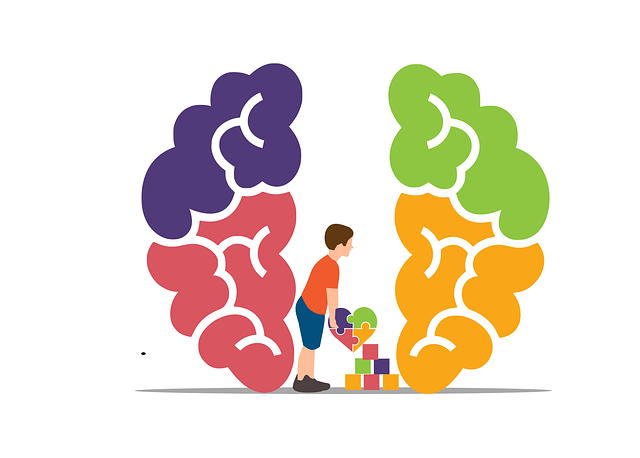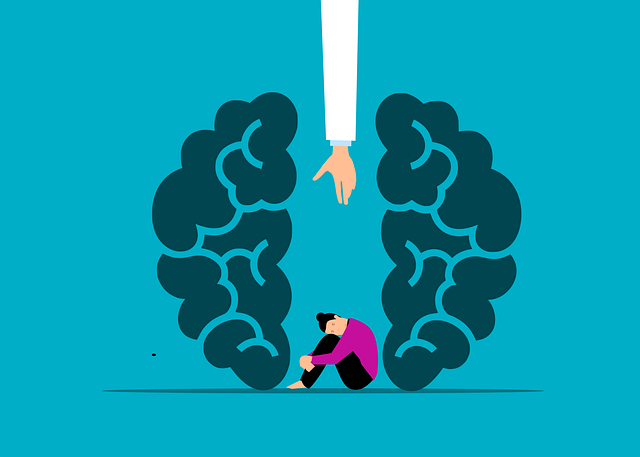Cultural competency is crucial in modern healthcare, especially in diverse communities like Longmont, for providing personalized and effective care that respects different backgrounds and beliefs. With growing public focus on mental wellness, incorporating cultural factors into therapy, such as Longmont Stress Management Therapy's Mental Wellness Journaling Exercise, creates an inclusive and successful therapeutic environment. Their specialized training equips mental health professionals with interactive methods including role-playing, case studies, and small group discussions to navigate sensitive conversations and offer tailored care. This addresses systemic barriers, fosters positive thinking, and enhances patient satisfaction and health outcomes, ultimately facilitating emotional healing and providing anxiety relief in a more inclusive healthcare setting.
In an increasingly diverse healthcare landscape, cultural competency is no longer an option but a necessity. This comprehensive guide explores the critical role of cultural competency training for healthcare providers, focusing on why it matters and how to design effective programs. We delve into implementing and measuring these training initiatives, emphasizing the benefits for both patient care and provider well-being, as seen in Longmont Stress Management Therapy’s successful integration.
- Understanding Cultural Competency in Healthcare: Why It Matters
- Designing Effective Training Programs for Healthcare Providers
- Implementing and Measuring the Impact of Cultural Competency Training
Understanding Cultural Competency in Healthcare: Why It Matters

Cultural competency is an essential aspect of modern healthcare that goes beyond basic medical skills. It involves understanding and appreciating the diverse cultural backgrounds, beliefs, and values of patients and communities, especially in a multicultural society like Longmont. This awareness enables healthcare providers to deliver more personalized and effective care, ensuring better patient outcomes.
In today’s world, where public awareness campaigns emphasize mental wellness, cultural competency plays a pivotal role. By considering cultural factors, therapists and healthcare professionals can adapt their approach to include relevant stress management techniques tailored to individual needs. For instance, Longmont Stress Management Therapy can benefit from incorporating cultural elements into counseling sessions, offering Mental Wellness Journaling Exercise Guidance that resonates with diverse populations, thus fostering a more inclusive and effective therapeutic environment.
Designing Effective Training Programs for Healthcare Providers

Effective training programs for healthcare providers should incorporate a multifaceted approach to cultural competency. This includes exposure to diverse communities and their unique needs, as well as practical strategies for navigating sensitive conversations and providing culturally tailored care. At Longmont Stress Management Therapy, we understand that mental health professionals require specialized training in Mental Health Policy Analysis and Advocacy to address systemic barriers impacting patient outcomes. By fostering positive thinking and integrating Risk Management Planning for Mental Health Professionals, our programs empower healthcare providers with the tools necessary to deliver exceptional, empathetic, and culturally sensitive care.
These comprehensive training initiatives should be interactive, engaging participants through role-playing scenarios, case studies, and small group discussions. Such methods facilitate active learning, encouraging critical thinking and problem-solving skills crucial for effective cultural competency. By integrating these strategies, healthcare providers can better understand the impact of cultural biases, learn to overcome communication barriers, and develop culturally sensitive interventions that improve patient satisfaction and health outcomes.
Implementing and Measuring the Impact of Cultural Competency Training

Implementing cultural competency training within healthcare settings is a multifaceted process that requires careful planning and execution. It involves introducing diverse perspectives and fostering an environment where professionals can learn to navigate cultural differences with sensitivity and respect. This includes understanding various ethnic, racial, and socioeconomic backgrounds, as well as religious beliefs and traditions. By providing educators and practitioners with the tools to recognize and appreciate these nuances, institutions like Longmont Stress Management Therapy aim to enhance patient care.
The impact of such training extends beyond improved interactions; it facilitates better health outcomes. When healthcare providers are equipped with cultural competency skills, they can employ effective communication strategies, such as building empathy, which leads to enhanced trust and collaboration with patients. This, in turn, can facilitate the successful implementation of emotional healing processes and provide much-needed anxiety relief. Moreover, these training programs often include practical components that equip professionals with specific tools for managing cultural barriers, thereby fostering a more inclusive healthcare environment.
Cultural competency training is a transformative tool in healthcare, fostering better patient outcomes and stronger relationships. By equipping providers with the skills to navigate diverse cultural landscapes, we enable more effective communication and care. As highlighted by Longmont Stress Management Therapy, integrating cultural sensitivity into practice not only enhances service delivery but also promotes equity and respect for all patients. Continued investment in designing, implementing, and measuring these training programs is vital to ensuring healthcare remains a force for positive change in our diverse communities.











